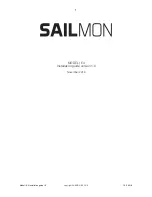
20
2. Maintenance of tiller
Keeping the tiller in good condition will prolong the tiller's life, and help it Arrive optimum
performance whenever you wish to till you garden.
To help you properly care for the rototiller, the following pages include a maintenance schedule,
routine inspection procedures, and simple maintenance procedures using basic hand tools. Other
service tasks that are more difficult, or require special tools, are best handled by professionals
and are normally performed by a qualified mechanic.
1. Brake-in
New machine, or machine after big service need first work without load for one hour. And then
work under low load for 5 hour. And drain out oil, and add clean oil. Next add fresh gasoline to
clean. And then add clean oil, and then brake-in four hours. Then machine can wrok rightly.
2. Maintenance
2.1. Good maintenance is your responsibility. Poor maintenance means troubles.
Follow good shop practices
Keep service area clean and dry
Be sure electrical outlets and tools are properly grounded.
Use adequate light for the job at hand.
2.2. Make sure the engine is off before you begin any maintenance or repairs. This will eliminate
several potential hazards:
Carbon monoxide poisoning from engine exhaust.
Be sure there is adequate ventilation whenever you operate the engine
Never operate the engine in a closed building.
Let the engine and exhaust system cool before touching
Do not run the engine unless instructed to do so.
2.3. Read the instructions before you begin, and make sure you have tile tools and skills required
2.4. To reduce the possibility of fire or explosion, be careful when working around gasoline Use
only a nonflammable solvent, not gasoline, to clean parts. Keep sparks and flames away from
all fuel-related parts.
2.5. Frequently check tiller tines. They should be free of nicks and cracks and securely fastened
in place
2.6. Periodically lighten all bolts, nuts, screw, and check that all pills ate properly installed to
make certain unit is safe to operate.
2.7. Where replacement parts are necessary for periodic maintenance and servicing, use only
new, original replacement parts or their equivalents for repair and replacement to restore
your equipment to original specifications.
2.8. The manufacturer and/or distributor will not be responsible for injuries or damages caused
by use of unapproved parts and/or accessories.
2.9. A first aid kit should be kept readily accessible while performing maintenance on this
equipment.
















































